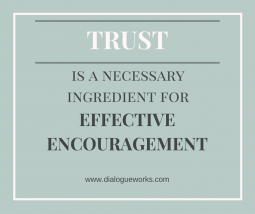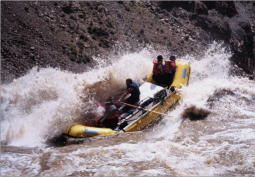Are Your Assumptions Getting the Best of You? 9 Questions for Challenging Your Thinking

Last November, I wrote a blog post about dealing with difficult people. I told a story of coming together for a family dinner at Thanksgiving.


Last November, I wrote a blog post about dealing with difficult people. I told a story of coming together for a family dinner at Thanksgiving.

When I first started working in the field of organizational development, my mentors told me three things that I always needed to remember about change: people don’t like it; people don’t understand it; and people won’t like you for trying to implement it. For the most part, I believe that is the case. Why?

A number of years ago, I was asked to coach an individual who had pretty much alienated everyone with whom he worked. When I was asked to work with him, I asked why his rehabilitation was so important. His senior leader indicated that he was extremely competent, but that he was interpersonally challenged.

A few years ago, I had the opportunity to watch one of my favorite college basketball teams win their quarterfinal contest in the NIT. What was so memorable about this game was that one of the team’s long-time stars played even though he was very sick. He contracted the flu before the game and was not expected to play.

I had a previous boss who would go off like a volcano anytime the results that we produced did not meet his expectations. He was so volatile in his reaction to bad news that other members of our law firm urged him to get some professional help in order to keep the rest of the staff from quitting. When he was caught off guard, nothing seemed to stem the tide of his anger. When this situation occurs it is never easy. Most of the time we would rather jump off a cliff than face the prospect of giving bad news to a superior. Nevertheless, there are a number of steps that you can take to improve the, “Bad news, Boss,” scenario. Hopefully you will find these useful in addressing a negative situation.

Recently one of my trainees went through her annual performance review. She received an unsatisfactory rating in one area because her manager told her that she was too argumentative. When she asked what that meant, she was told that she asked too many questions.

A few weeks ago I was taking my son to school in the midst of a snow storm. As I pulled into the student drop-off at the high school, I noticed a woman who was getting into her car as I was waiting to move forward. I was about up to her car when she got in, and started to back out. As there wasn't really room for her to pull out, so I pulled forward past her. Her rear lights went on and she started to back out just as I passed her.

I recently had a VP tell me that she had assigned one of her directors the task of doing a comparability study of their company’s compensation and benefits vis-à-vis other companies in their industry. After the director had completed the study, the VP grilled the director on his findings. The director had a difficult time answering the questions that she asked and came across as lacking in confidence. The VP was then faced with a dilemma: should she make the presentation to the Board of Trustees herself or should she run the risk of allowing the director to make the...

Awhile back as I was going to bed, my wife said to me, “John I don’t know if I can stay married to you much longer.” After I got over the initial shock, I asked her what was going on. She replied,

Exploring the assumptions or stories behind people’s behavior is a fascinating pursuit. Recently a friend told me a wild story about his mother that gave me cause to think about how our stories keep us stuck--from improving and creating the results that we really want.

After running the river for a number of years, my curiosity finally got the best of me. I wondered what it would be like to swim one of the major rapids. With some hesitation, I put on an extra life jacket for extra buoyancy and jumped into Hermit Creek Rapid.

Late last year I had the opportunity to work with a wonderful writer on an article dealing with how to engage with people who are shy. During the editing process, much of the original information was omitted due to space constraints, so I thought the subject merited some additional attention.

While I was in college, I worked during the summers as a whitewater guide running the rapids in Grand Canyon, Arizona. One of the first things that you learn as a guide is to follow the current of the river downstream.

Many years ago, I was assigned a business coach as part of my professional development plan. At first I didn’t really think that I needed a coach to help me grow and develop in my career aspirations. Then one day when things were not going particularly well, she asked me, “If you could paint a picture for me of how you are feeling at this moment, how would it look?”

During the holidays, my youngest children rigged a booby trap in our Christmas tree, so if Santa Claus touched the tree a little bell would sound the alarm. I was really quite amazed at their ingenuity in an attempt to catch the old elf delivering gifts on Christmas Eve. The entire situation made me reflect on the importance of the alarms that are present in our lives. These alarms act as a warning that we are moving or steering off course.